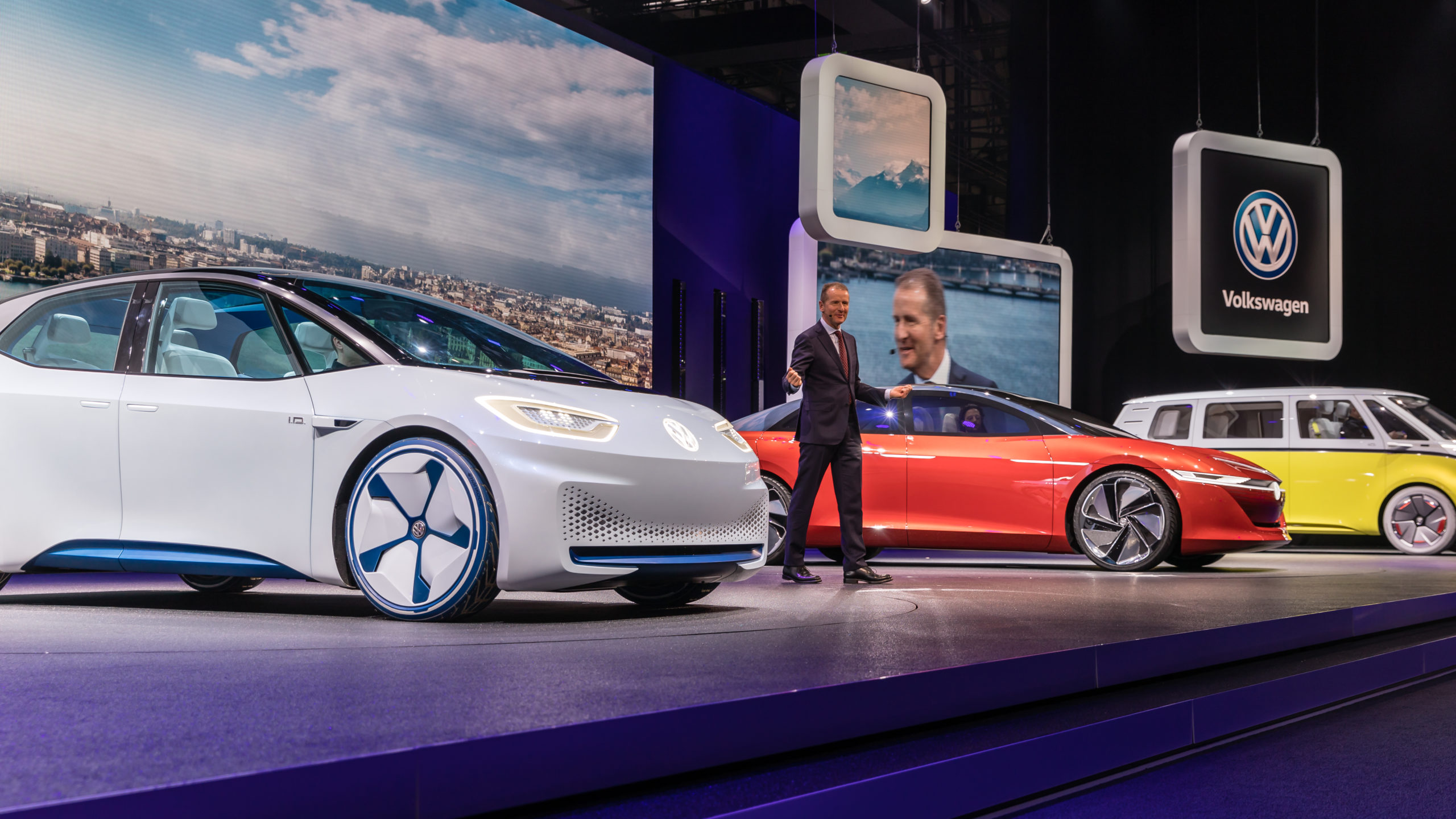
As enthusiasm for electric vehicles (EVs) grows, many consumers are making the switch, and this journey is filled with excitement and discovery. Owners of electric and hybrid cars enthusiastically share their experiences, providing invaluable insights for those considering the transition. An impressive 95 percent of drivers report satisfaction with their EVs and hybrids, reflecting a positive trend that inspires potential buyers to embrace electrification.

1. **Driving Experience**: Electric car owners often rave about the exhilarating driving experience that EVs provide. With an impressive 96% satisfaction rate in this category, it’s no surprise that drivers appreciate the instant torque and smooth acceleration that electric vehicles deliver. This makes the driving experience not just satisfactory but thrilling, especially when compared to gas-powered vehicles, where only 88% of owners report the same level of enthusiasm.

2. **Design, Comfort, and Quality**: When it comes to design, comfort, and quality, electric cars have made significant strides. A remarkable 93% of electric vehicle owners find their cars meet or exceed their expectations in this area. These vehicles are designed with the driver in mind, offering a combination of modern aesthetics and ergonomic comfort that enhances the overall driving experience.

3. **Reliability**: Reliability is another key factor where electric cars shine, with 92% of owners expressing satisfaction. Unlike gas-powered vehicles, which can face numerous mechanical issues, EVs are often seen as more dependable due to their simpler mechanics. The absence of traditional combustion engine components reduces the likelihood of breakdowns and maintenance needs, making EVs a reliable choice for many.

4. **Safety Features**: Safety is paramount when it comes to vehicle purchases. Electric vehicles are equipped with advanced safety features, resulting in a satisfaction rate of 92% among owners. This is significant compared to only 80% for gas-powered cars. The integration of modern technology in EVs often includes features like automatic emergency braking, lane-keeping assistance, and adaptive cruise control, contributing to the heightened sense of safety.

5. **Technology Features**: Electric vehicles are often equipped with the latest technology, which contributes to a remarkable satisfaction rate of 90% among their owners. These vehicles boast intuitive infotainment systems and advanced connectivity options, all designed to elevate the driving experience. Owners especially value features that ensure smooth integration with their smartphones and provide real-time updates about vehicle performance and charging station availability.

6. **Cost of Ownership**: Surprisingly, a significant number of drivers are satisfied with the cost of owning an electric or hybrid vehicle. Sixty-three percent of owners report satisfaction with their out-of-pocket expenses, while only 64% of gas-powered car owners felt the same. The lower operating costs associated with EVs, such as reduced maintenance and fuel expenses, contribute to this satisfaction level.

7. **Charging Convenience**: While owning an EV comes with many benefits, charging convenience is a topic that often raises questions. Only 77% of electric vehicle owners are satisfied with charging convenience, indicating that it’s an area where potential buyers should do their homework. Understanding the charging infrastructure in their area is crucial for owners to maximize their vehicle’s capabilities and avoid range anxiety.

8. **Range and Resale Value**: Despite the growing interest in electric vehicles, range anxiety continues to be a concern for many potential buyers, with only 73% of electric vehicle owners expressing satisfaction with their car’s range. Additionally, while 61% of owners are content with the resale value of their vehicles, it often lags behind that of hybrids and gas-powered cars. This highlights the importance for buyers to weigh long-term value when deciding to invest in an EV.

9. **Environmental Benefits**: For many, the decision to purchase an electric vehicle goes beyond personal gratification and taps into deeper environmental considerations. A notable 41% of EV owners and 43% of hybrid owners recognize the environmental benefits of their choice, making it clear that contributing to sustainable practices is a significant motivation. This awareness enhances the appeal of driving an EV as a responsible lifestyle choice that aligns with their values.

10. **Tax Incentives and Confusion**: While owning an EV can offer substantial economic advantages, navigating tax incentives can often be perplexing for many owners. Only 20% of electric vehicle owners and 13% of hybrid owners cite tax incentives as a primary benefit, underscoring the need for potential buyers to familiarize themselves with available credits and incentives. These can play a crucial role in offsetting the costs associated with owning an electric vehicle.

The sentiment among electric vehicle owners is overwhelmingly positive, with high satisfaction rates across numerous metrics including driving experience, safety, and technology features. The journey to EV ownership can come with hurdles, particularly regarding charging convenience and range, but it also opens up a world of benefits that many consumers find worthwhile. As more people make the switch to electric, understanding these insights can be invaluable for potential EV owners looking to make informed decisions as they enter the world of electric driving.

11. **Cost of Insurance**: One important aspect of owning an electric vehicle (EV) that many buyers might overlook is the cost of insurance. Generally, electric cars can be more expensive to insure than traditional gas-powered vehicles. This is primarily due to their higher repair and replacement costs, as well as the specialized parts and technology that EVs utilize. It’s advisable for potential buyers to shop around for insurance quotes before making a purchase, as rates can vary significantly between providers. Understanding the potential insurance costs can help owners better budget their overall expenses.

12. **Home Charging Setup**: For many EV owners, the convenience of charging at home is one of the greatest benefits. However, some buyers may not understand the implications of installing a home charging station. While many homes can charge using a standard 120-volt outlet, a Level 2 charger (240 volts) can dramatically reduce charging times. Potential buyers should consider the installation costs, which can range from a few hundred to several thousand dollars, depending on their home’s electrical capacity and whether they require upgrades. Evaluating local incentives for home charging installations may also help offset costs.

13. **Battery Life and Replacement Costs**: One of the biggest considerations for potential EV buyers is the lifespan of the battery and the costs associated with its replacement. While most modern electric vehicles come with warranties covering battery performance for several years or a specific mileage, replacements when needed can be quite costly, often reaching thousands of dollars. Owners should be aware of the average battery lifespan, which typically ranges from 8 to 15 years depending on usage and charging habits. This knowledge is vital for planning long-term ownership and understanding potential future expenses.

14. **Impact on Home Electricity Usage**: Charging your electric vehicle at home will inevitably influence your electricity consumption patterns, and for some, this may lead to unexpected increases in their electricity bills. It’s important for future EV owners to assess their typical driving habits and estimate how this will affect their energy use. Some utility providers offer discounted rates for EV charging, which can help alleviate costs. Gaining a clear understanding of how your electric vehicle will integrate into your overall energy expenses will assist you in budgeting and planning effectively.

15. **Technology Updates and Features**: Electric vehicles are often equipped with the latest technology, including software updates and advanced features. However, some owners may not realize that these features can sometimes be subscription-based, leading to additional costs down the road. Features such as enhanced navigation, advanced driver-assistance systems, and even remote diagnostics may require ongoing fees. Potential buyers should research what features come standard and which ones may incur monthly or yearly fees to avoid unexpected expenses.

16. **Community and Support**: Joining an EV community can provide significant support for new owners, offering insights and advice on everything from charging tips to troubleshooting. Some buyers may not be aware of the wealth of online forums, social media groups, and local clubs that exist for electric vehicle enthusiasts. Engaging with a community can enhance the ownership experience, providing encouragement, sharing experiences, and facilitating connections with fellow EV drivers.

17. **Dealing with Recalls and Software Issues**: As with any vehicle, electric cars can experience recalls and software issues. New owners should be prepared to address these situations, which might involve returning their vehicles to a dealership for updates or repairs. It’s essential for potential buyers to stay informed about their vehicle’s model and any known issues that may arise, as well as how to efficiently handle recalls. Having a clear understanding of how to navigate these situations can alleviate concerns in the long run.

18. **Long-Distance Travel Considerations**: While electric vehicles are excellent for daily commutes, long-distance travel can present unique challenges. Potential buyers should factor in their travel habits and determine if they are comfortable with the charging infrastructure available along their typical routes. Planning for extended trips may require additional preparation, including identifying charging stations and understanding charging times. Owners should also consider the impact of driving styles on range, especially during long trips.

Embarking on the journey to own an electric vehicle can be both thrilling and fulfilling. However, by grasping the nuances of electric vehicle ownership—such as expenses, charging logistics, community resources, and travel considerations—you can enhance your experience. With the right insights and preparation, future buyers can confidently navigate their decisions and fully relish the myriad benefits that come with driving an electric vehicle.
Related posts:
What EV Owners Learned About Shifting Away from Gas
Things I Wish I Knew Before Buying an EV — Dispatches from the Frozen North
Things I Wish I Knew Before Getting an Electric Car





